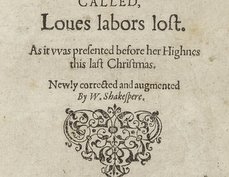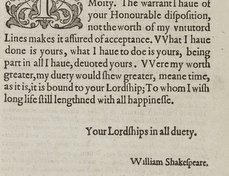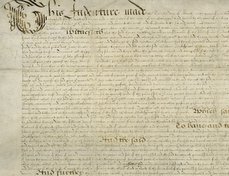Terms of use
Images that are under Folger copyright are licensed under a Creative Commons Attribution-ShareAlike 4.0 International License. This allows you to use our images without additional permission provided that you cite the Folger Shakespeare Library as the source and you license anything you create using the images under the same or equivalent license. For more information, including permissions beyond the scope of this license, see Permissions. The Folger waives permission fees for non-commercial publication by registered non-profits, including university presses, regardless of the license they use. For images copyrighted by an entity other than the Folger, please contact the copyright holder for permission information.
Copy specific information
Creator: William Covell
Title: Polimanteia, or, The meanes lawfull and vnlawfull, to iudge of the fall of a common-wealth, against the friuolous and foolish coniectures of this age. Whereunto is added, a letter from England to her three daughters, Cambridge, Oxford, Innes of Court, and to all the rest of her inhabitants: perswading them to a constant vnitie of what religion soever they are, for the defence of our dread soveraigne, and natiue cuntry: most requisite for this time wherein wee now live.
Date: [Cambridge and London] : Printed by Iohn Legate, printer to the Vniversitie of Cambridge [and J. Orwin in London] 1595. And are to be sold [by R. Bankworth] at the signe of the Sunne in Pauls Church-yard in London, [1595]
Repository: Folger Shakespeare Library, Washington, DC, USA
Call number and opening: STC 5883 copy 3, sig. R2v-R3r
View online bibliographic record
Adam G. Hooks, "Polimenteia: Earliest printed direct reference to Shakespeare's Venus and Adonis and Lucrece," Shakespeare Documented, https://doi.org/10.37078/195.
Folger Shakespeare Library, STC 5883 copy 3. See Shakespeare Documented, https://doi.org/10.37078/195.
In 1595 William Covell, a church of England clergyman and a fellow of Queen’s College in Cambridge, wrote Polimanteia, which was produced by John Legate, the Cambridge University printer. Polimanteia is a polemical treatise aimed at “the friuolous and foolish coniectures of this age,” as the title-page states—which for Covell meant, among other things, protecting the revenues of the Church from outside interference.
Polimanteia is best known today for a few references to contemporary poets, including William Shakespeare. In the margins of a passage in praise of Samuel Daniel, Covell alludes to several other poets, writing of the “Lucrecia” and the “Wanton Adonis” of “Sweet Shakspeare”—that is, Lucrece (1594) and Venus and Adonis (1593), Shakespeare’s two best-selling poems. Covell therefore commented on Shakespeare’s popular poems one and two years after their first publication, respectively. The adjective “sweet,” which denoted a particularly attractive poetic style, was the most common epithet used to describe Shakespeare, especially among those attuned to the literary scene, like Covell’s student John Weever, who also alluded to Shakespeare’s poetry in print.
That someone of Covell’s interests and convictions recognized and alluded to Shakespeare’s poems so soon after their appearance in print testifies to his contemporary reputation and notoriety as a love poet.
Written by Adam G. Hooks
Sources
E. A. J. Honigmann, John Weever: A Biography of a Literary Associate of Shakespeare and Jonson, The Revels Plays Companion Library (Manchester University Press, 1987).
Adam G. Hooks, Selling Shakespeare: Biography, Bibliography, and the Book Trade (Cambridge University Press, 2016).
Last updated August 11, 2020











